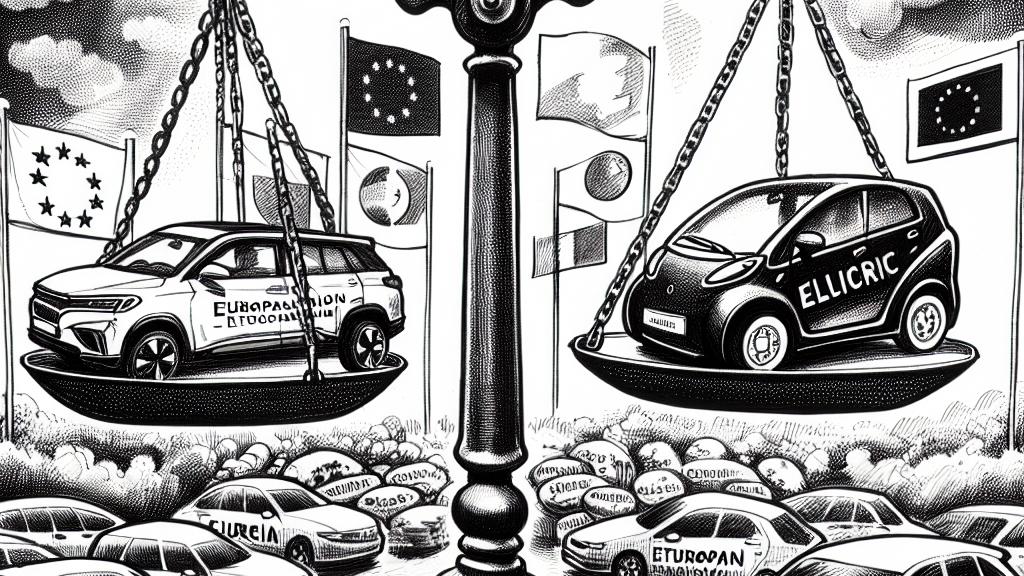European Union Imposes Tariffs on Chinese Electric Vehicles
Overview
- The EU's recent decision to impose tariffs on Chinese battery electric vehicles (BEVs) signals a critical shift in trade policy.
- These tariffs are intended to protect European manufacturers from unfair competition due to Chinese state subsidies.
- As discussions unfold, member states navigate complex considerations of economic impact and international relations.

An Overview of the EU's Tariff Decision
On October 4, 2024, a landmark decision unfolded as the European Union (EU) voted to implement tariffs on battery electric vehicles (BEVs) manufactured in China. This decision does not exist in isolation; it emerges from a thorough investigation highlighting that Chinese automakers enjoy generous government subsidies that allow them to undercut European prices significantly. For instance, imported Chinese EVs have been reported to be, on average, 29% cheaper than their European counterparts. Such price discrepancies not only pose a direct threat to local industries but also raise questions about the fairness of global trading practices. Thus, the EU's imposition of tariffs, which could go as high as 45% depending on the manufacturer, illustrates a strategic pivot aimed at leveling the playing field amid rising global competition.
Economic Ramifications and Varied Member State Reactions
The economic ramifications of these tariffs are profound and multifaceted. For example, well-known manufacturers like BYD face tariffs of around 17.4%, while companies such as Geely could see rates of 20%. This has ignited a heated debate among EU member states regarding the potential consequences of these measures. Germany, for instance, expresses considerable concern over possible retaliatory actions from China, which might impact its car manufacturers struggling under existing market pressures. Conversely, countries like France fervently support the tariffs, arguing they are essential for safeguarding European jobs and industries. This division illustrates the complexity of balancing national interests and fostering unity among EU states in the face of escalating international trade challenges. The broader implications, including concerns of a potential trade war, only emphasize the need for strategic diplomacy moving forward.
Future Dynamics and Ongoing Dialogue
In the wake of these developments, the EU remains committed to pursuing dialogue with Chinese authorities, hoping to find mutually acceptable solutions that comply with World Trade Organization regulations. Despite the hurdles posed by these tariffs, numerous Chinese companies, including notable players like NIO and BYD, have expressed a resolute desire to succeed in the European market. They contend that by emphasizing innovation, maintaining competitive pricing, and ensuring product quality, they can overcome the challenges presented by new trade barriers. This resilience epitomizes a larger narrative about adaptability in the rapidly evolving landscape of global trade. As the demand for electric vehicles burgeons, the intricate interplay between tariffs and innovative strategies will undoubtedly shape the future of the automotive industry, paving the way for both obstacles and opportunities for manufacturers across the globe.

Loading...